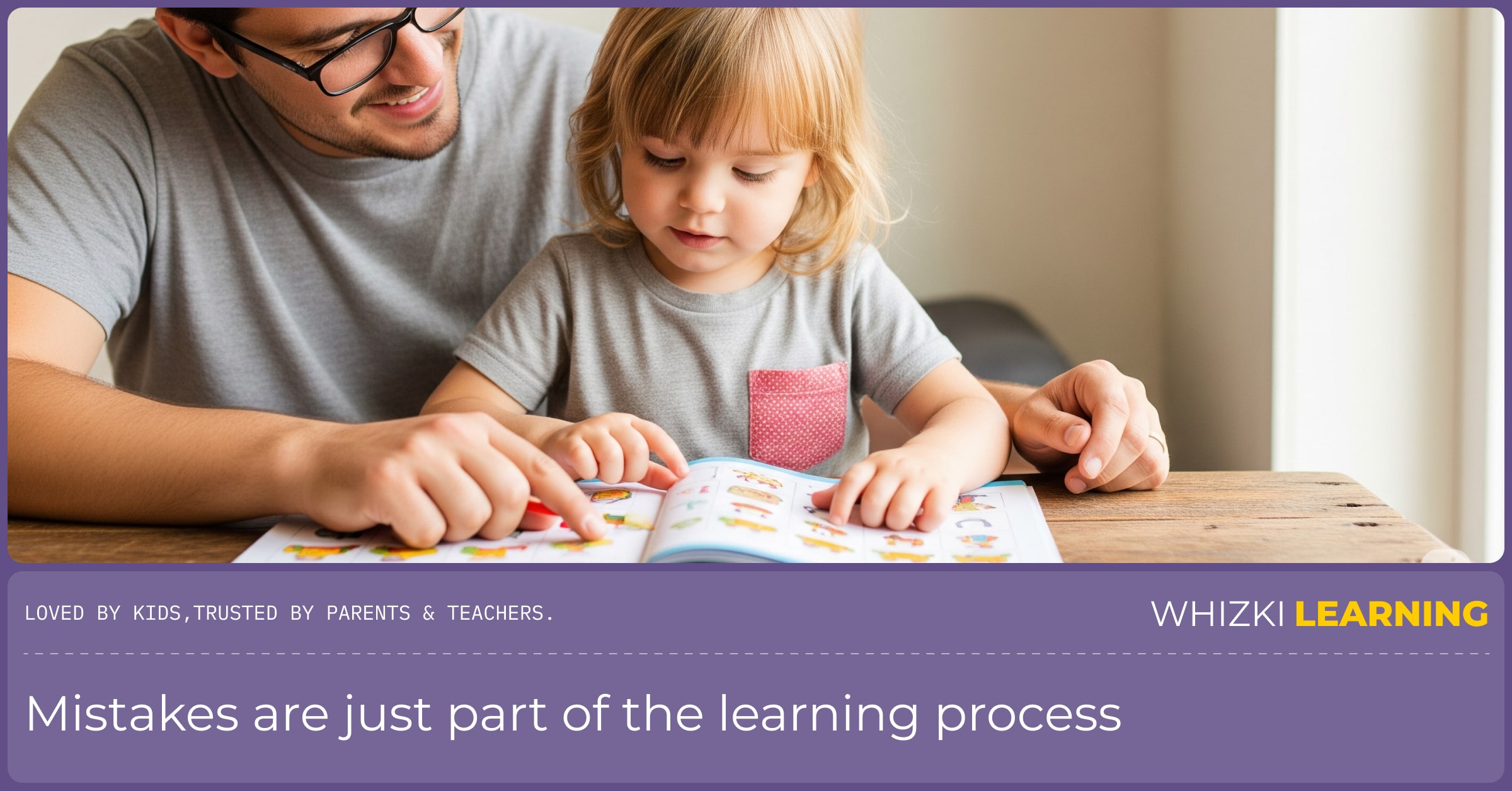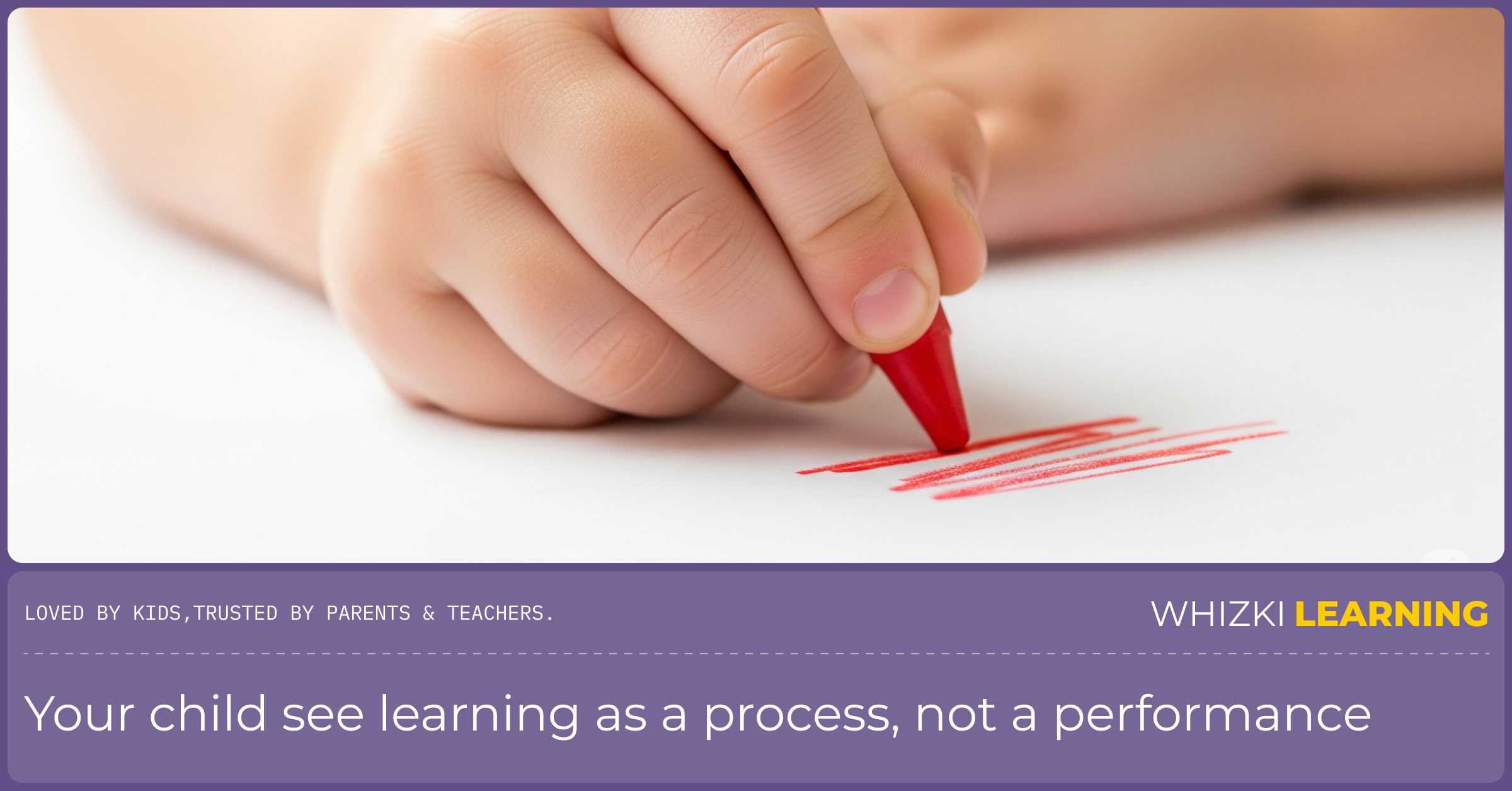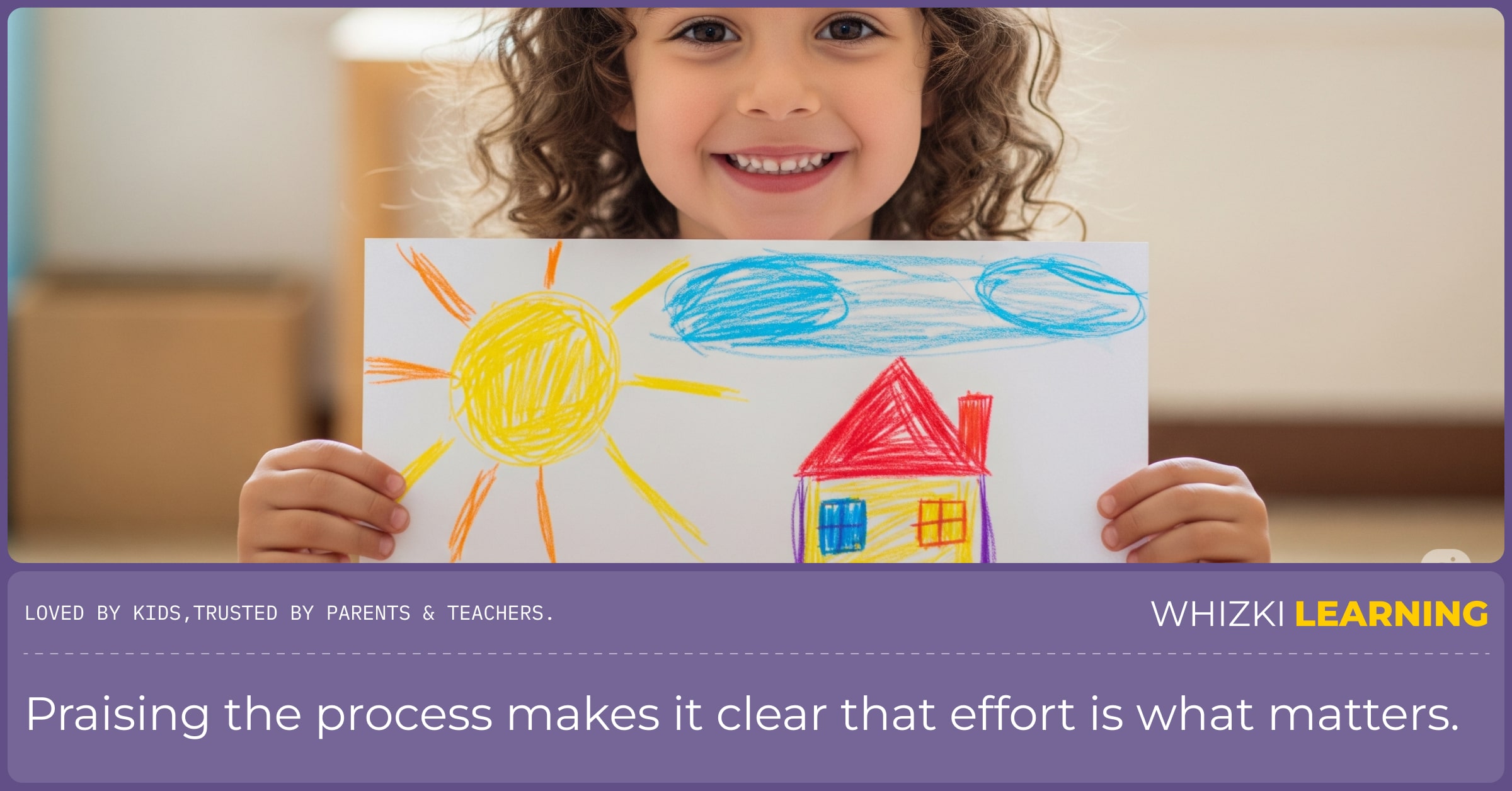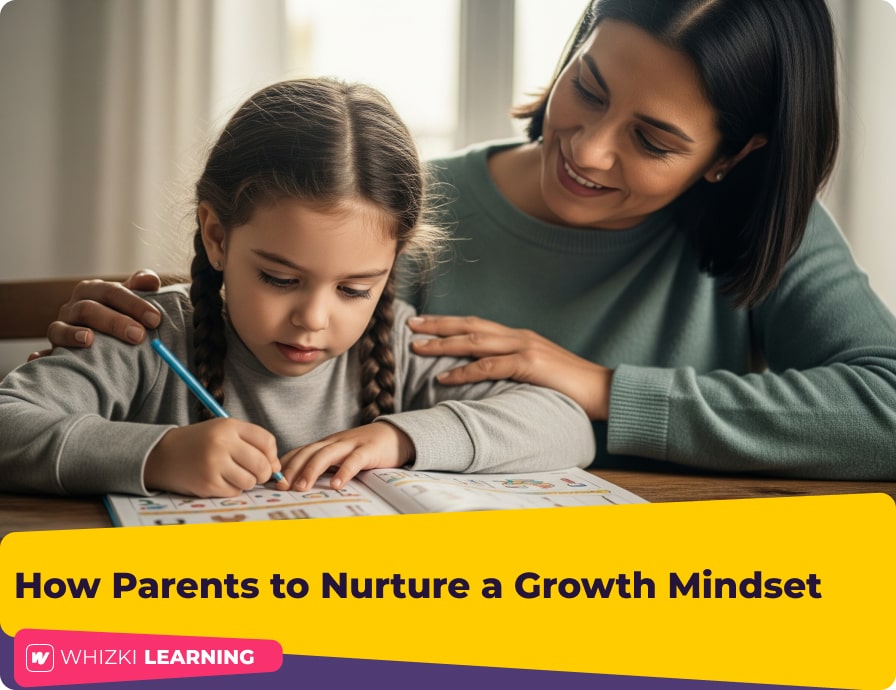Hey there, fellow parent. Does this sound familiar? You set up a fun activity, and two minutes in, you hear that little voice wobble, “I can’t do it!” Your child crumples the paper, throws the crayon, and the fun is officially over. Your heart sinks. You see their frustration, and you feel it, too. It’s that moment of seeing them give up that’s so tough, leaving you wondering how to help them push through challenges without tears.
You’re not alone in this. We all want to raise kids who are resilient, confident, and willing to try, especially as they get ready for kindergarten. The good news is, you can. This is where nurturing a growth mindset comes in, and it’s one of the most powerful gifts you can give your child.
What is a Growth Mindset (and Why Does It Matter)?
Let's break it down without the jargon. It’s a simple but powerful idea. At its core, it’s about what we believe about our own abilities.

Here’s a quick comparison:
- Fixed Mindset
- This is the belief that intelligence and abilities are set in stone. You’re either “good at it” or “bad at it.” When a child with a fixed mindset fails, they see it as a verdict on who they are, which feels terrible and makes them want to avoid that activity in the future.
- Growth Mindset
- This is the belief that abilities can be developed through dedication and hard work. The brain is like a muscle that gets stronger with practice. When a child with a growth mindset fails, they see it as an opportunity to learn and improve. It’s not a verdict, just a starting point.
Fostering a growth mindset is a key part of first grade readiness and beyond. It teaches kids that effort is valuable, challenges are opportunities, and mistakes are just part of the learning process. It’s the foundation for a love of learning and the resilience to navigate life’s ups and downs.
3 Practical Ways to Nurture a Growth Mindset Today
Okay, theory is great, but how do we apply this when your four-year-old is having a meltdown over a puzzle? Here are three simple, powerful strategies you can start using right away.
1. Embrace the Power of “Yet”
The single most powerful word you can add to your parenting vocabulary is “yet.” When your child says, “I can’t draw a circle,” you can gently rephrase it: “You can’t draw a circle yet.”
This tiny word completely changes the meaning. It transforms a dead end into a journey. It implies that with practice, it’s possible. It’s one of the most effective brain booster activities you can do, because it literally rewires how your child thinks about challenges.

Try it in different situations:
- “I can’t ride my bike!” → “You just haven’t gotten the hang of it yet.”
- “I don’t know how to read!” → “You’re learning the letters, so you can’t read yet.”
- “I’m not good at this game!” → “You’re still learning the rules, so you’re not an expert yet.”
This simple shift helps your child see learning as a process, not a performance. For more ideas on building persistence, check out our guide on reclaiming your child's focus.
2. Praise the Process, Not the Person
It’s so natural to say, “You’re so smart!” when your child finishes a puzzle. But surprisingly, this kind of praise can sometimes backfire. It links their success to an innate quality (being “smart”), which can make them afraid to try things they might not be “smart” at.
Instead, focus your praise on their effort, their strategy, and their persistence. This is called “process praise.”

Here’s how to swap your praise:
| Instead of This (Person Praise) | Try This (Process Praise) |
|---|---|
| “You’re a natural artist!” | “I love how you used so many different colors in your drawing. You worked so hard on that!” |
| “You’re so clever!” | “Wow, that puzzle was tricky! You tried a lot of different pieces until you found the one that fit. Great strategy!” |
| “See, you did it perfectly!” | “I saw how you kept trying even when it was difficult. Your persistence paid off!” |
Praising the process makes it clear that effort is what matters. It gives your child a roadmap for what to do next time they face a challenge: try hard, use a good strategy, and stick with it.
At Whizki Learning, we design our printed workbooks with this in mind. Our entire philosophy is built on helping your child thrive offline. A workbook like our First Learn to Trace and Write isn’t about getting every letter perfect on the first try. It's about the journey of tracing and writing practice. The high-quality paper is forgiving, letting your child erase and try again without a smudge. It’s a safe space to make mistakes, practice fine motor skills, and physically feel the progress of turning a wobble into a confident line. It’s the perfect tool for practicing “not yet.”
3. Model It Yourself!
Our kids are always watching. One of the most authentic ways to teach a growth mindset is to live it. Let your child see you struggle, make mistakes, and keep trying. Narrate your own process out loud.
- In the kitchen: “Oops, I added too much salt. Oh well, next time I’ll measure more carefully. Let’s see if we can fix this.”
- Building furniture: “This instruction manual is confusing. I’m feeling a little frustrated, but I’m going to take a deep breath and try looking at the picture again.”
- Trying a new skill: “I’ve never planted a garden before, and some of these plants might not grow. But I’m excited to learn how it works!”
When you model this behavior, you show your child that it’s normal and okay for things to be hard. You demonstrate that frustration is a manageable emotion, not a stop sign. This is one of the most important parent resources for kindergarten and life-showing them how to handle imperfection with grace and resilience.
Building a growth mindset isn't an overnight fix; it's a continuous conversation. It’s about creating a home environment where your child feels safe to take risks, knowing that your love and support are based on who they are, not what they achieve. By using the power of “yet,” praising the process, and modeling resilience yourself, you’re giving them the tools they need to become confident, brave, and lifelong learners. And you’re doing an amazing job.






